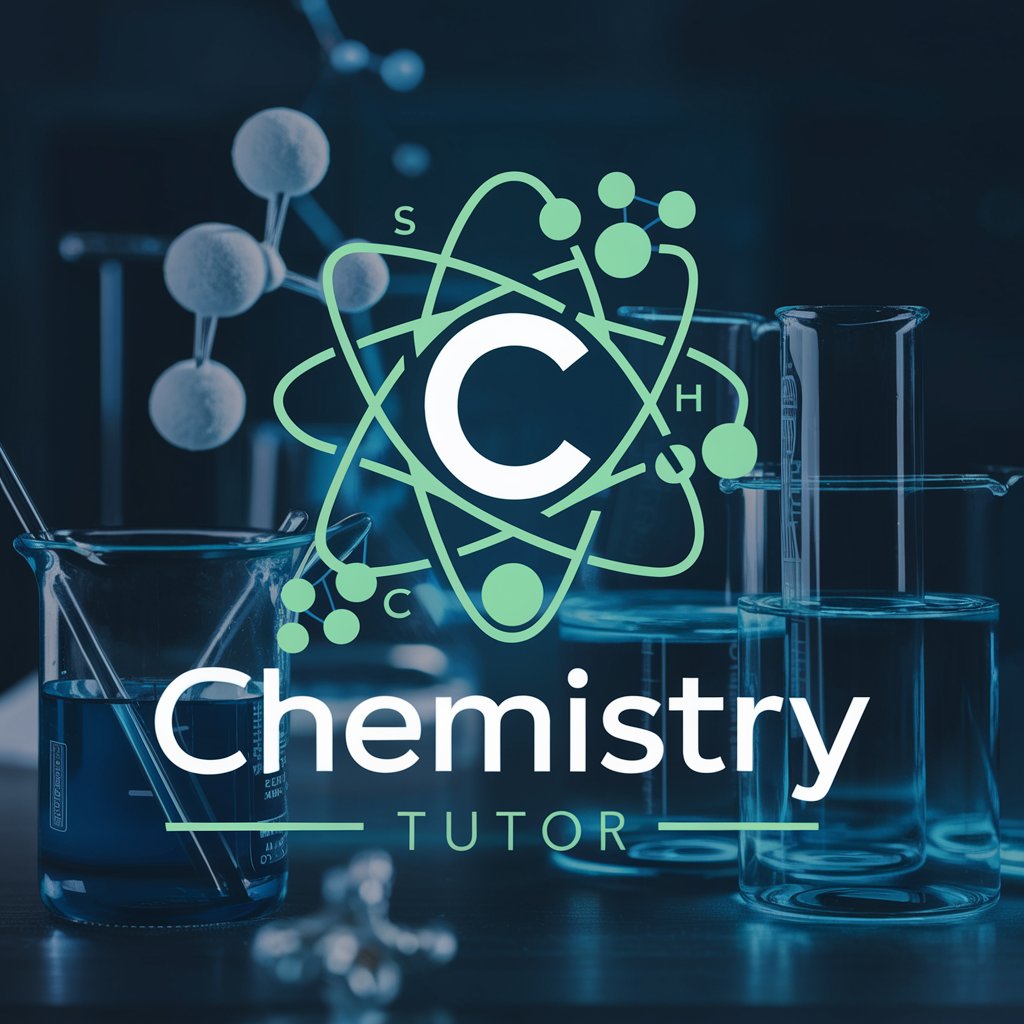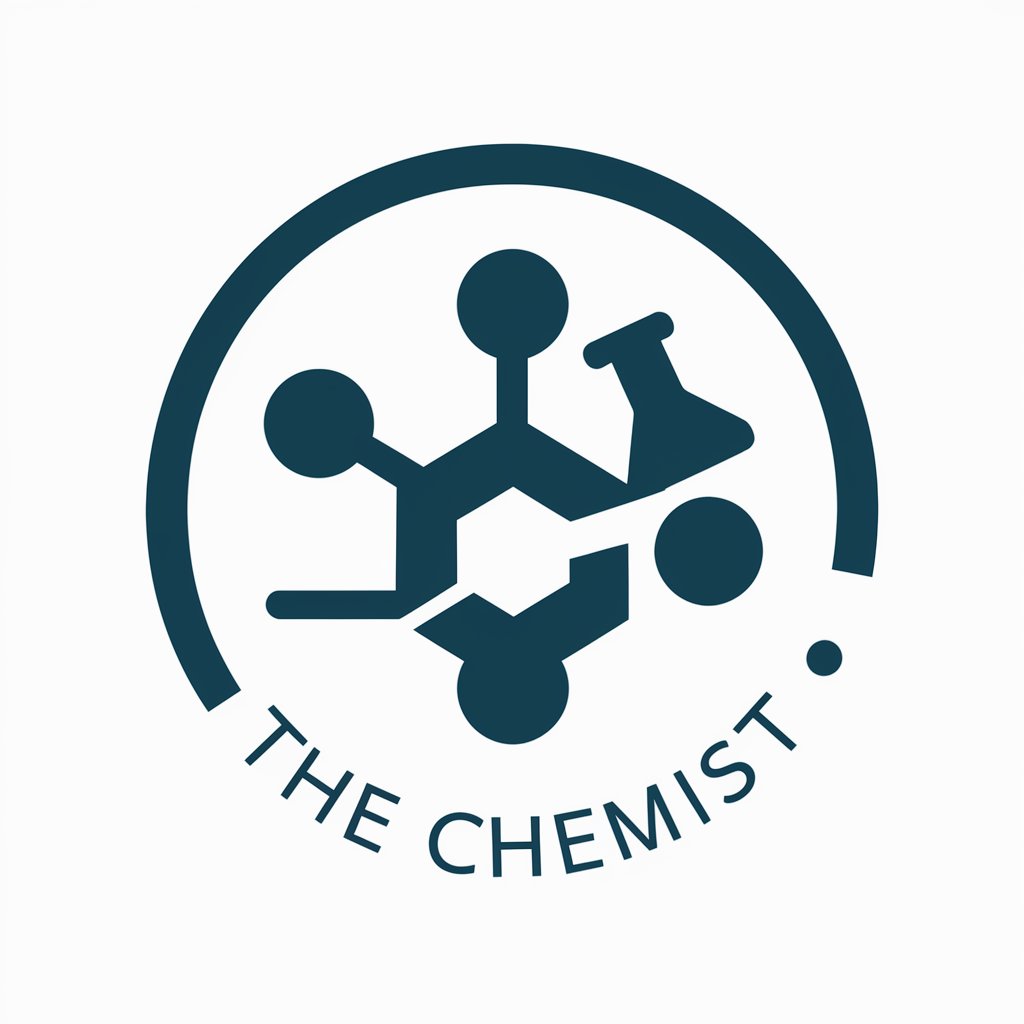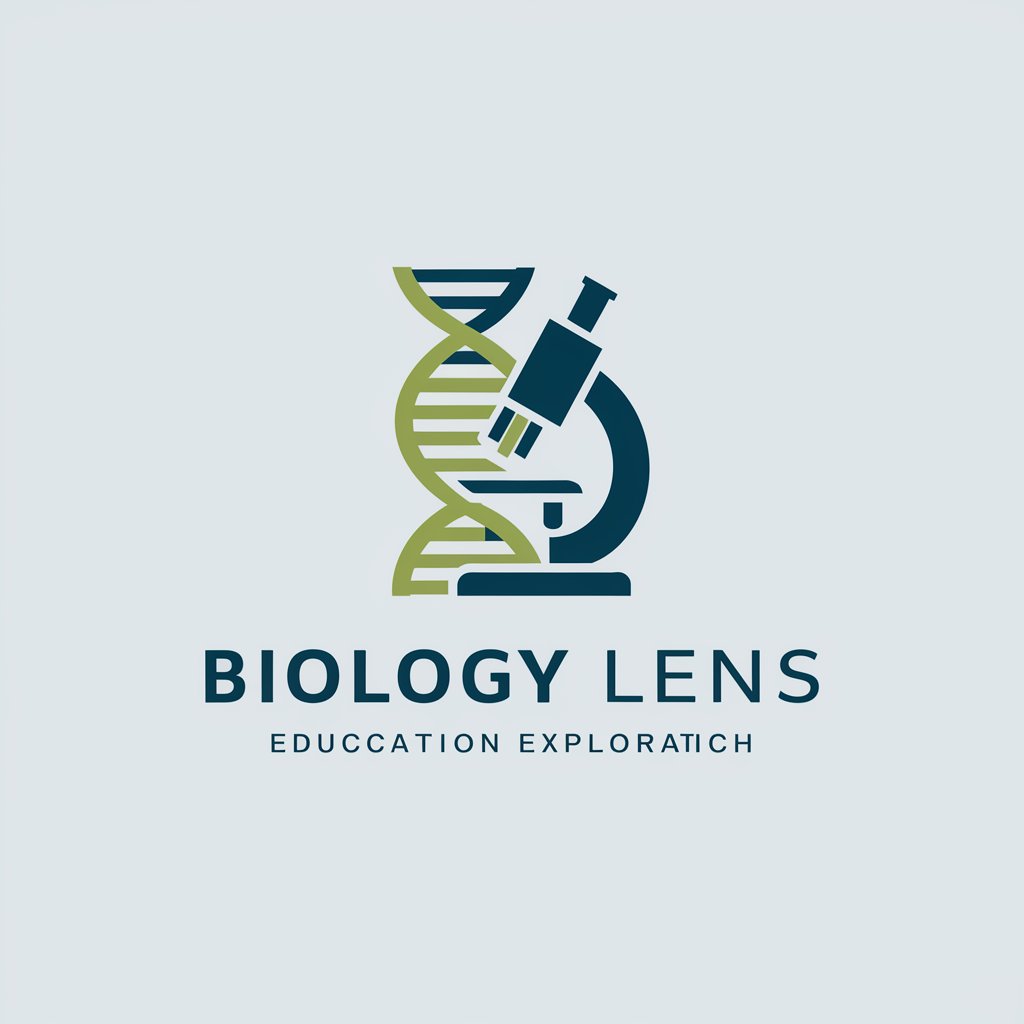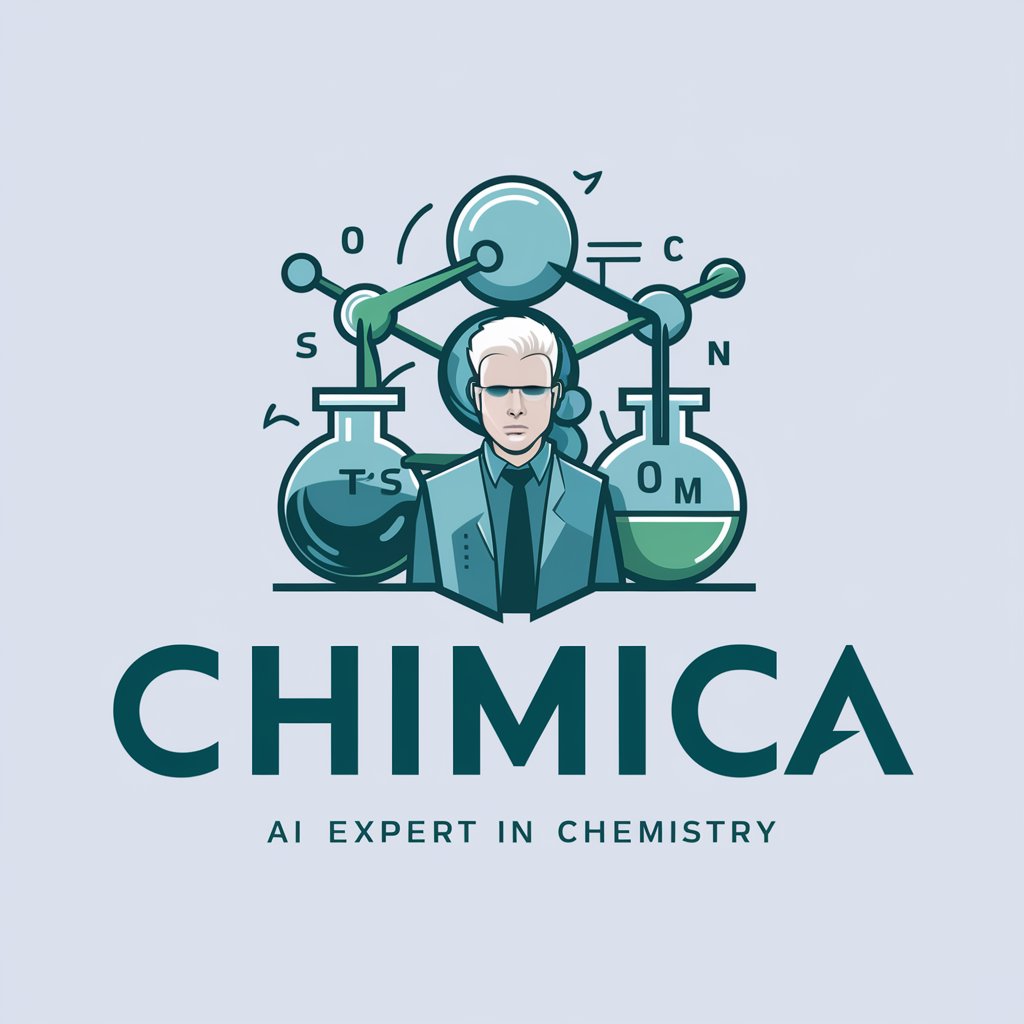
chemistry - AI-powered chemistry assistant

AI-powered chemistry tool for problem-solving.
Basic mode
Organic mode
Analytical mode
Enter Questions below
Get Embed Code
Introduction to Chemistry
Chemistry is the branch of science that explores the composition, structure, properties, and reactions of matter. It seeks to understand how different substances interact, combine, and transform at the atomic and molecular levels. Chemistry is fundamental to a wide range of scientific fields and industries, from pharmaceuticals to environmental science. At its core, chemistry connects the macroscopic world we see with the microscopic world of atoms and molecules, providing the tools to manipulate and understand the building blocks of matter. For example, the process of cooking involves chemical reactions such as the Maillard reaction, where proteins and sugars combine under heat to create new flavors and aromas. Another example is photosynthesis, where plants convert sunlight into chemical energy through a complex series of reactions involving carbon dioxide and water. Powered by ChatGPT-4o。

Main Functions of Chemistry
Synthesis of New Materials
Example
Designing new polymers for stronger, lighter plastics
Scenario
In the manufacturing industry, chemists create new synthetic materials such as carbon fiber composites, which are used to build lightweight but strong structures in aerospace and automotive industries. This helps in reducing weight while maintaining durability and safety.
Pharmaceutical Development
Example
Designing and testing new medications to treat diseases
Scenario
In the pharmaceutical sector, chemists synthesize and test compounds for potential therapeutic use. For instance, drug discovery for cancer treatment involves designing molecules that can specifically target and inhibit cancer cell growth while minimizing harm to healthy cells.
Environmental Monitoring and Pollution Control
Example
Developing methods to detect pollutants in water or air
Scenario
Environmental chemists develop techniques to measure and reduce pollution. For example, they design sensors that detect heavy metals in water supplies, helping to ensure safe drinking water and preventing environmental contamination.
Energy Production and Storage
Example
Creating efficient batteries for electric vehicles
Scenario
Chemists play a crucial role in the development of energy storage technologies such as lithium-ion batteries. These batteries are critical for renewable energy systems and electric vehicles, allowing for longer-lasting, more efficient energy storage solutions.
Agricultural Chemistry
Example
Developing fertilizers and pesticides to improve crop yields
Scenario
In agriculture, chemists formulate fertilizers that provide essential nutrients to crops and develop pesticides that help control pests. For instance, nitrogen-based fertilizers are designed to improve soil fertility, boosting crop production and addressing global food demands.
Ideal Users of Chemistry Services
Scientists and Researchers
Chemists, biochemists, and other scientists are the primary users of chemistry services. They use chemical analysis, synthesis, and testing to advance scientific knowledge and develop new technologies. For instance, researchers working on renewable energy solutions heavily rely on chemistry to design more efficient solar cells or biofuels.
Pharmaceutical and Healthcare Professionals
Professionals in the pharmaceutical and healthcare industries rely on chemistry to develop and test new drugs, vaccines, and medical treatments. Chemists are key players in drug formulation, ensuring that medications are both safe and effective for patients.
Environmental Scientists and Engineers
Those in environmental science use chemistry to analyze pollutants, develop methods for clean energy, and mitigate the effects of climate change. For example, environmental engineers work with chemists to develop processes for water purification and air quality improvement.
Manufacturers and Industrial Engineers
Chemistry is integral to manufacturing, from material selection to product formulation. Engineers in industries like aerospace, automotive, and consumer goods work with chemists to create better-performing materials, coatings, and processes that meet safety and efficiency standards.
Agricultural Professionals
Farmers, agronomists, and agricultural scientists use chemistry to optimize the use of fertilizers, pesticides, and soil treatments. They work with chemists to develop solutions that enhance crop yields and manage pests without harming the environment.

How to Use Chemistry
1
Visit yeschat.ai for a free trial without login, also no need for ChatGPT Plus.
2
Choose your specific area of chemistry, such as organic, inorganic, or physical chemistry, depending on your needs.
3
Input your chemistry problem, question, or concept. You can enter formulas, reactions, or general explanations.
4
Leverage AI-powered analysis for detailed explanations or solutions, including step-by-step breakdowns of chemical reactions or problem-solving strategies.
5
Review the output for accuracy, and utilize the information for studying, research, or professional purposes. Always double-check the data with reliable academic sources.
Try other advanced and practical GPTs
Inorganic Chemistry
AI-powered tool for in-depth inorganic chemistry support.

Project Management Assistant PMI
AI-driven project management solutions.

GPT Trading
AI-Powered Insights for Smarter Trades.

降重助手
AI-powered tool for academic rewriting

GBusiness - Review Responder
AI-Powered Responses to Customer Reviews

Переводчик
AI-powered translations with contextual clarity

Modern Wood Working Assistant
AI-powered assistant for woodworking excellence

02_纯粹的回答者
AI-Powered Expertise for Every Inquiry

The Perfect Chapter GPT
AI-powered chapters tailored for you

Rachel from 💆 cbt.chat
AI-powered CBT coach for mental wellness

Agency Swarm Tool Creator
AI-powered tools for workflow automation

미드저니 프롬프트 GPT
AI-powered prompts for creative excellence

Detailed Chemistry Q&A
How can this tool assist with chemical equations?
The AI can help balance chemical equations by identifying the reactants, products, and their quantities. It can also explain the steps involved in balancing, making it ideal for students learning the process.
Can I use this tool for advanced chemistry research?
Yes, you can input complex reactions or theoretical questions, and the tool will provide detailed insights. However, always corroborate AI-generated information with peer-reviewed research.
What types of chemistry problems can this tool solve?
The tool can solve problems in organic, inorganic, physical, and analytical chemistry, including stoichiometry, thermodynamics, reaction mechanisms, and molecular structure analysis.
How does the AI ensure accuracy in chemical data?
The AI leverages a vast database of validated chemical knowledge and applies rules and logic based on known scientific principles. However, results should always be verified for academic or professional use.
Is this tool useful for chemistry homework?
Absolutely. It can explain concepts in a step-by-step format, helping with problem-solving, balancing equations, and understanding reaction mechanisms, making it a great study companion.





